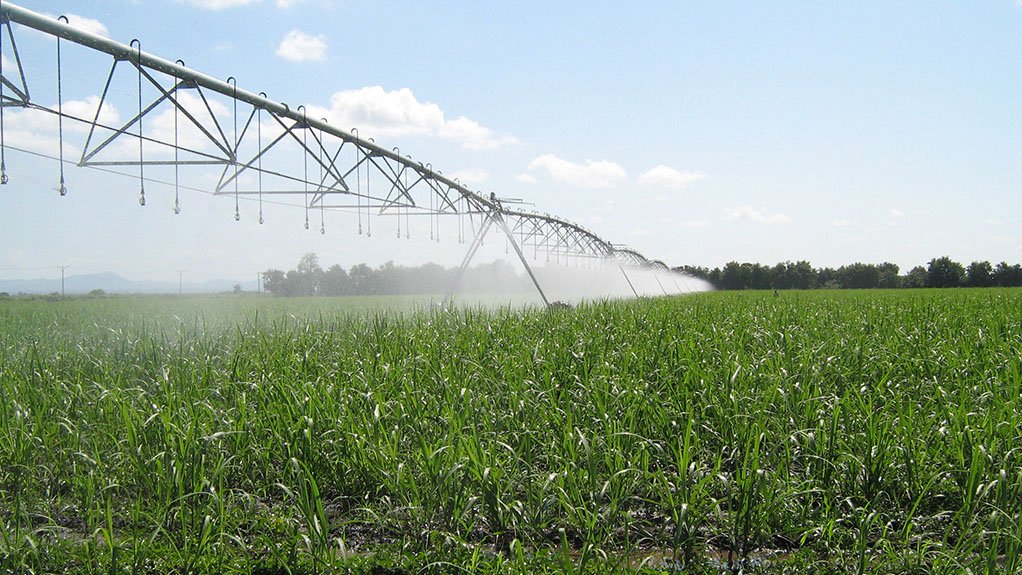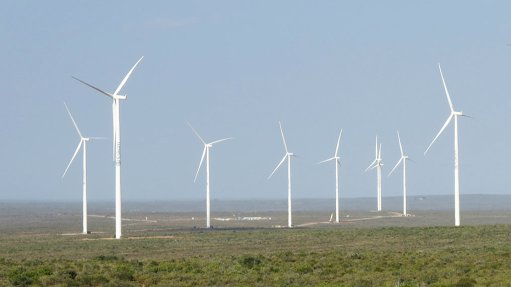Agri SA warns of unconstitutionality of proposed water-use licence regulation
Industry body Agri SA remains concerned about the draft Water Use Licence Applications, Amendment and Appeals Regulations published by the Department of Water and Sanitation (DWS) and believes these should not be enacted in the current form.
Agri SA has noted its concerns in comments on the proposed regulations, saying that the regulations need to be reviewed and substantially amended, given the potential impact on food security.
The draft regulations were published for public comment on May 19, proposing that certain enterprises applying for water-use licences to take or store water would in future have to allocate shares of up to 75% to black South Africans in order for the licence to be granted.
Despite having received some clarification from the DWS in June, Agri SA says the draft regulations are misaligned with provisions in the National Water Act (NWA), the Equality Act and the Constitution.
In its clarifications on the draft regulations, the DWS said the new transformation requirements proposed by the regulations would only apply to the 1.5% of water resources in South Africa that have not already been allocated.
Additionally, the DWS said the regulations were not intended to apply to applications for the renewal of existing water-use licences, nor to the water-use licence applications which will arise out of compulsory licensing.
Agri SA confirms that it has considered the clarifications received from the DWS in its parameters of the suggested reformulation of the regulations.
The industry body explains that no provision in the NWA empowers the Minister to make regulations prescribing substantive requirements for licence applications or for the determination of licence applications.
“Even if such power is inferred, the Act provides that, in issuing a licence, the responsible authority must take into account all relevant factors, including efficient and beneficial use of water in the public interest, the socioeconomic impact of the water use and investments already made by the water user.”
Agri SA adds that the need to redress past racial and gender discrimination is one of the 11 factors that are taken into account when issuing water-use licences and that, by law, when determining an application for a water licence, the responsible authority must strike a reasonable balance between all the factors.
The organisation states that the “arbitrary and therefore legally impermissible nature of racial quotas” have already been established by court judgments.
“As the draft regulations do not allow for any element of discretion, they are so rigid as to be indistinguishable from a quota and therefore invalid.”
Another concern Agri SA points out is that the draft regulations reduce transformation to black ownership, whereas the Codes of Practice issued under the Broad-based Black Economic Empowerment Act uses a scorecard that comprises five elements, with ownership being only one.
Agri SA says the other four scorecard elements of management control, skills development, enterprise and supplier development and socioeconomic development should also be taken into account by DWS when issuing water-use licences.
Moreover, the organisation says the inclusion of women as a previously disadvantaged group should also be taken into account, since the draft regulations only include racial transformation goals.
Agri SA says it is well aware of the historical imbalances that prevail in the agriculture sector, but the sector must achieve equality within the rule of law.
Agri SA’s submission makes it clear that, were the draft regulations passed as published, they would have a potentially catastrophic impact on agriculture and the country’s food security.
The organisation ultimately advocates for a water licensing regulatory framework that respects the Constitution and protects food security.
Article Enquiry
Email Article
Save Article
Feedback
To advertise email advertising@creamermedia.co.za or click here
Press Office
Announcements
What's On
Subscribe to improve your user experience...
Option 1 (equivalent of R125 a month):
Receive a weekly copy of Creamer Media's Engineering News & Mining Weekly magazine
(print copy for those in South Africa and e-magazine for those outside of South Africa)
Receive daily email newsletters
Access to full search results
Access archive of magazine back copies
Access to Projects in Progress
Access to ONE Research Report of your choice in PDF format
Option 2 (equivalent of R375 a month):
All benefits from Option 1
PLUS
Access to Creamer Media's Research Channel Africa for ALL Research Reports, in PDF format, on various industrial and mining sectors
including Electricity; Water; Energy Transition; Hydrogen; Roads, Rail and Ports; Coal; Gold; Platinum; Battery Metals; etc.
Already a subscriber?
Forgotten your password?
Receive weekly copy of Creamer Media's Engineering News & Mining Weekly magazine (print copy for those in South Africa and e-magazine for those outside of South Africa)
➕
Recieve daily email newsletters
➕
Access to full search results
➕
Access archive of magazine back copies
➕
Access to Projects in Progress
➕
Access to ONE Research Report of your choice in PDF format
RESEARCH CHANNEL AFRICA
R4500 (equivalent of R375 a month)
SUBSCRIBEAll benefits from Option 1
➕
Access to Creamer Media's Research Channel Africa for ALL Research Reports on various industrial and mining sectors, in PDF format, including on:
Electricity
➕
Water
➕
Energy Transition
➕
Hydrogen
➕
Roads, Rail and Ports
➕
Coal
➕
Gold
➕
Platinum
➕
Battery Metals
➕
etc.
Receive all benefits from Option 1 or Option 2 delivered to numerous people at your company
➕
Multiple User names and Passwords for simultaneous log-ins
➕
Intranet integration access to all in your organisation




















